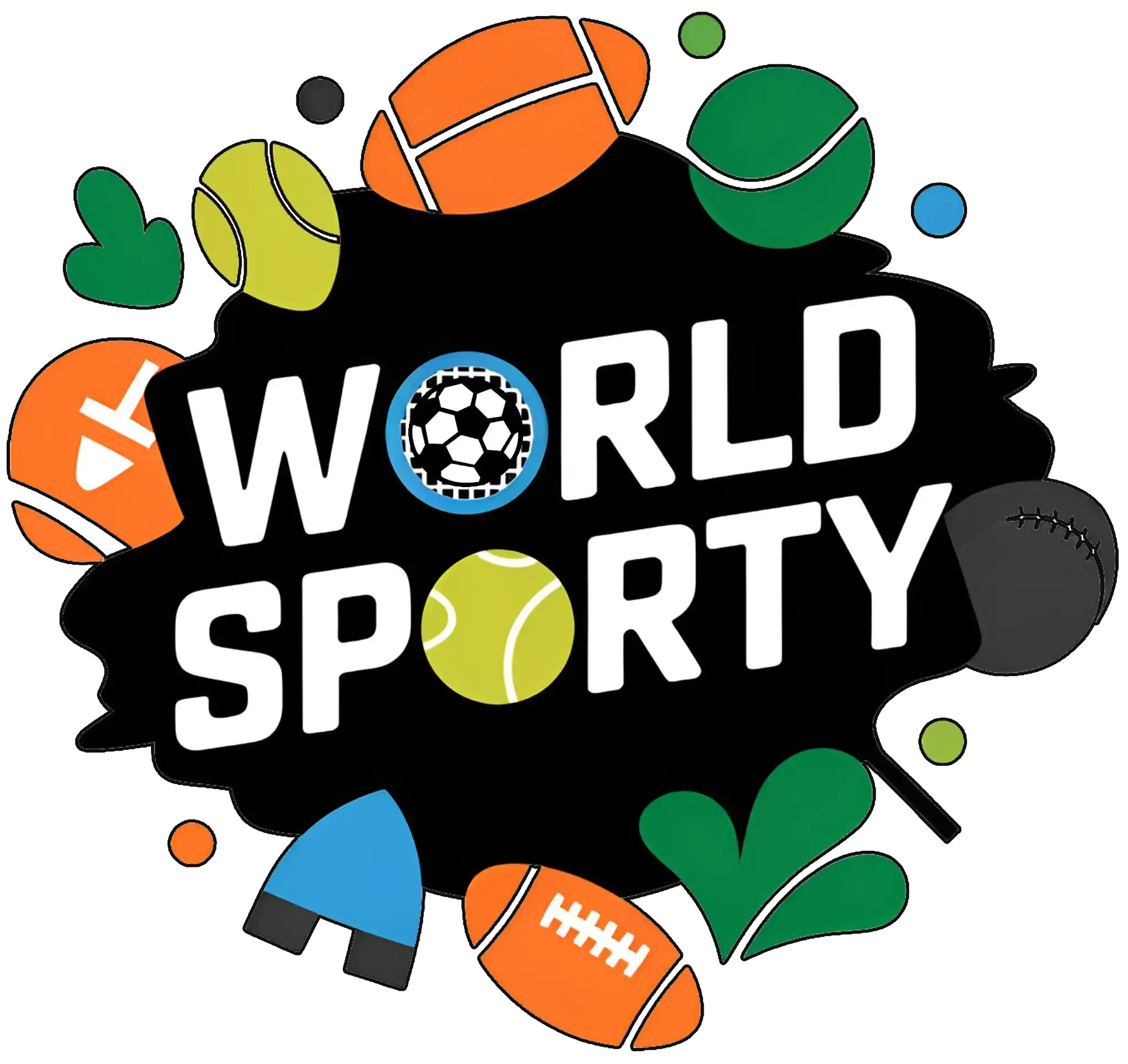Fueling Your Fitness: The Power of Proper Nutrition for Athletic Performance
| Key Nutrient | Function | Recommended Intake |
|---|---|---|
| Carbohydrates | Energy source | 45-65% of daily calories |
| Protein | Muscle repair and growth | 1.2-2.0 g/kg body weight |
| Fats | Hormone production, nutrient absorption | 20-35% of daily calories |
Proper nutrition is the cornerstone of athletic performance. Here’s what you need to know:
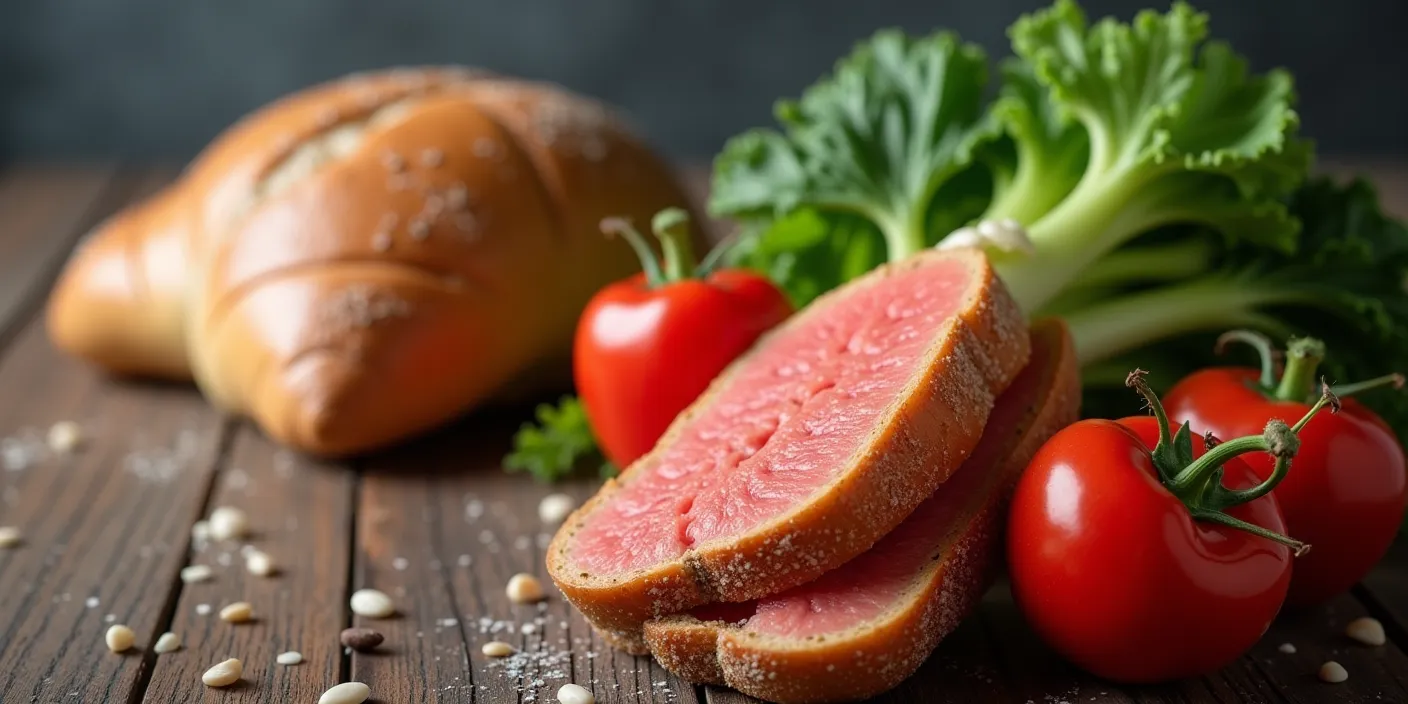
“Boost Athletic Performance with Balanced Nutrition”
#NutritionTips, #Performance, #FitnessAdvice
- Balanced macronutrients fuel your workouts
- Hydration is crucial for optimal performance
- Timing of meals can impact energy levels
- Micronutrients support overall health and recovery
“Good nutrition creates health in all areas of our existence. All parts are interconnected.” – T. Colin Campbell
FAQ: Nutrition for Athletes
Q: How much protein do I need as an athlete?
A: Athletes typically need 1.2-2.0 grams of protein per kilogram of body weight daily, depending on their sport and training intensity.
Q: Should I eat before or after a workout?
A: Both! A light meal 2-3 hours before exercise provides energy, while post-workout nutrition aids recovery.
Q: Are supplements necessary for athletic performance?
A: While a balanced diet is key, some athletes may benefit from specific supplements. Consult a sports nutritionist for personalized advice.
For more insights on athlete nutrition and training, check out our Athlete Profiles section.
Meal Planning for Peak Performance
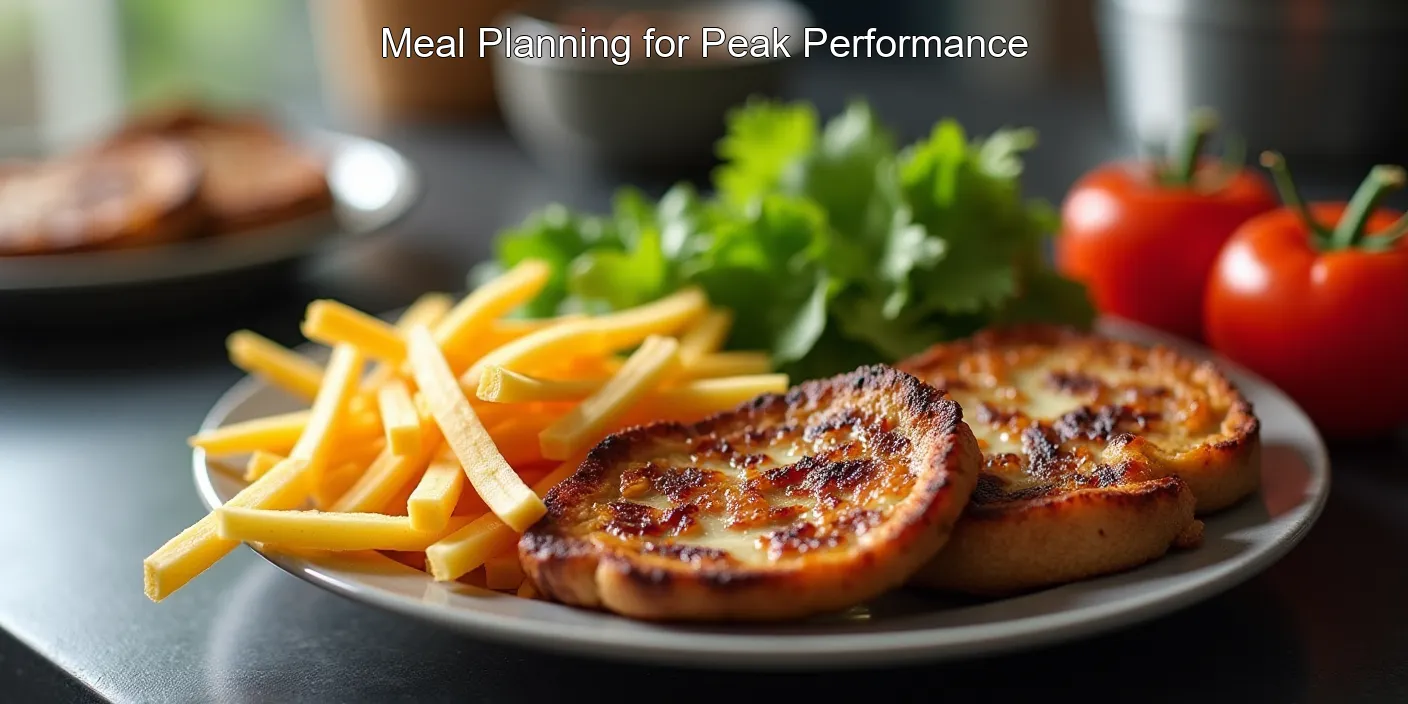
| Meal Timing | Recommended Foods |
|---|---|
| Pre-workout | Banana, whole grain toast, peanut butter |
| Post-workout | Greek yogurt, berries, lean protein |
| Recovery meal | Grilled chicken, quinoa, mixed vegetables |
Effective meal planning can significantly boost your athletic performance. Consider these tips:
“Boost Athletic Performance with Smart Meal Planning Tips”
- Prepare meals in advance to ensure balanced nutrition
- Include a variety of colorful fruits and vegetables
- Choose lean proteins and complex carbohydrates
- Stay hydrated with water and electrolyte-rich drinks
“Let food be thy medicine and medicine be thy food.” – Hippocrates
FAQ: Meal Planning for Athletes
Q: How can I maintain proper nutrition when traveling for competitions?
A: Pack portable, nutrient-dense snacks and research restaurant options in advance.
Q: What should I eat during long endurance events?
A: Easily digestible carbohydrates like energy gels, bananas, or sports drinks can help maintain energy levels.
Q: How can I avoid gastrointestinal issues during intense training?
A: Experiment with different foods during training, not on race day, and avoid high-fiber meals close to exercise.
For more detailed Fitness & Training advice, explore our comprehensive guides.
The Impact of Nutrition on Recovery
| Recovery Factor | Nutritional Support |
|---|---|
| Muscle repair | High-quality protein sources |
| Inflammation reduction | Omega-3 fatty acids, antioxidants |
| Glycogen replenishment | Complex carbohydrates |
Proper nutrition plays a crucial role in recovery, helping you bounce back faster and stronger. Here’s how:
- Adequate protein intake supports muscle repair and growth
- Antioxidant-rich foods combat exercise-induced oxidative stress
- Hydration aids in nutrient transport and waste removal
- Balanced meals promote hormonal equilibrium
“Recovery is the most important part of your workout.” – Unknown
FAQ: Nutrition for Recovery
Q: What’s the best post-workout recovery meal?
A: A combination of protein and carbohydrates, such as a smoothie with whey protein and fruit, can aid recovery.
Q: How long after exercise should I eat?
A: Aim to eat within 30-60 minutes post-exercise to maximize recovery benefits.
Q: Can nutrition help prevent injuries?
A: Yes, proper nutrition supports tissue health and can reduce the risk of overuse injuries.
Stay updated on the latest Global Sports News and nutrition trends to optimize your performance.
Remember, nutrition is a powerful tool in your athletic arsenal. By fueling your body properly, you’re not just eating – you’re investing in your performance and longevity as an athlete. For cutting-edge insights on Sports Technology that can complement your nutrition strategy, explore our dedicated section.
Nutrition Tips for Peak Performance: Fueling Your Fitness Journey
| Key Aspect | Benefit |
|---|---|
| Balanced Diet | Improved Energy Levels |
| Hydration | Enhanced Endurance |
| Nutrient Timing | Faster Recovery |
Proper nutrition is the cornerstone of athletic success. Whether you’re a weekend warrior or a professional athlete, what you eat can make or break your performance. Let’s dive into the essentials of fueling your body for peak performance.
- Carbohydrates: The body’s primary energy source
- Proteins: Essential for muscle repair and growth
- Fats: Provide sustained energy for endurance activities
- Vitamins and Minerals: Support overall health and recovery
“Nutrition is the foundation of any fitness program. You can’t out-train a bad diet.” – Michael Phelps, Olympic swimmer
Frequently Asked Questions
Q: How much protein do athletes need?
A: Athletes typically need 1.2-2.0 grams of protein per kilogram of body weight daily, depending on their sport and training intensity.
Q: Should I eat before or after a workout?
A: Both! A light meal 2-3 hours before exercise provides energy, while post-workout nutrition aids recovery.
Q: Are supplements necessary for athletes?
A: While a balanced diet should be the primary focus, some athletes may benefit from specific supplements under professional guidance.
Hydration: The Often Overlooked Performance Enhancer
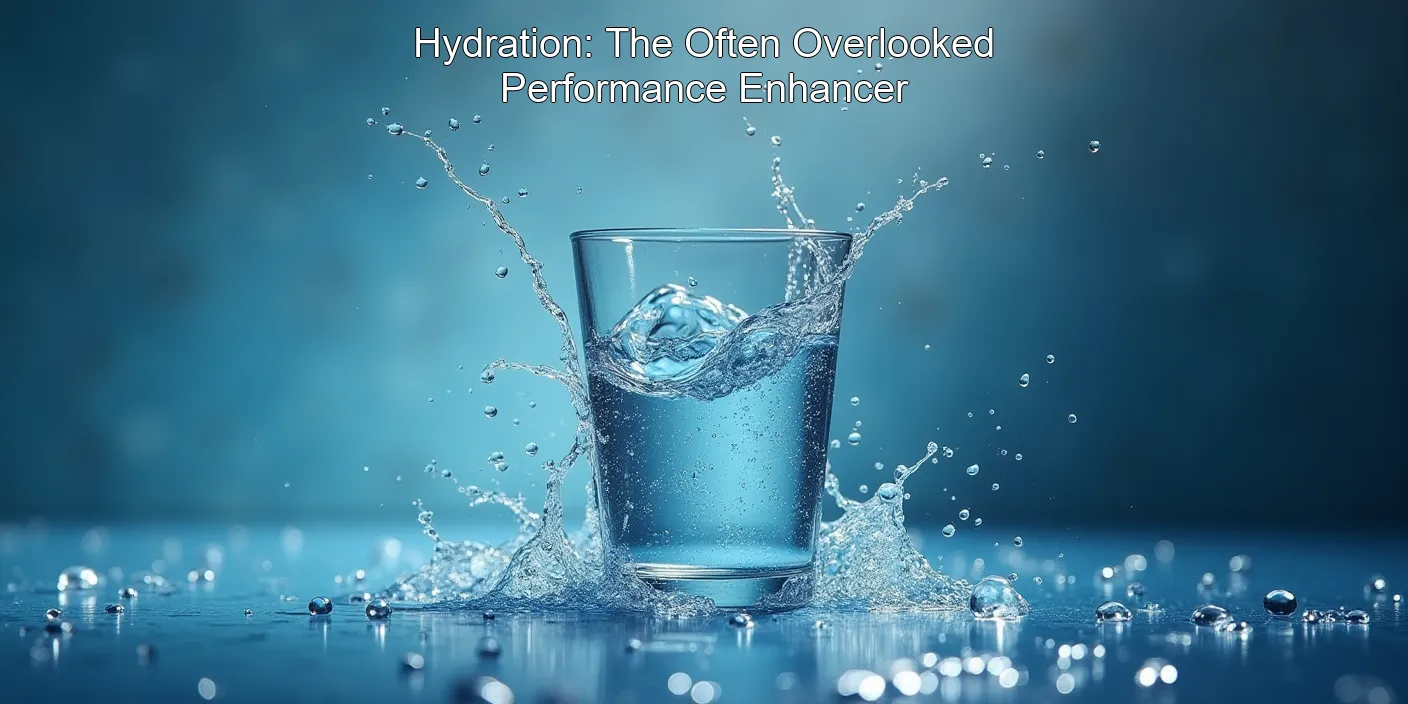
| Hydration Level | Performance Impact |
|---|---|
| Well-hydrated | Optimal Performance |
| 2% Dehydration | 10-20% Performance Decrease |
| 5% Dehydration | 30% Performance Decrease |
Water is life, especially for athletes. Proper hydration is crucial for maintaining performance, regulating body temperature, and preventing fatigue. Let’s explore some hydration strategies to keep you at the top of your game.
- Drink water consistently throughout the day
- Monitor urine color (pale yellow indicates good hydration)
- Replace fluids lost during exercise
- Consider electrolyte drinks for intense or prolonged activities
“If you’re thirsty, you’re already dehydrated. Stay ahead of your hydration needs.” – Serena Williams, Tennis champion
Q: How much water should I drink daily?
A: Aim for at least 8-10 glasses (64-80 oz) of water daily, more if you’re very active or in hot climates.
Q: Are sports drinks necessary?
A: For activities lasting over an hour or in extreme conditions, sports drinks can help replenish electrolytes.
Q: Can I drink too much water?
A: Yes, overhydration is possible. Listen to your body and don’t force excessive fluid intake.
Remember, nutrition and hydration are personal. What works for one athlete may not work for another. It’s essential to experiment and find what fuels your body best. For more in-depth information on nutrition strategies, check out our Fitness & Training section.
Curious about how top athletes fuel their bodies? Dive into our Athlete Profiles to discover the nutrition secrets of champions. Stay updated on the latest nutritional breakthroughs in our Global Sports News section, and explore cutting-edge nutrition tracking tools in our Sports Technology category.
By focusing on proper nutrition and hydration, you’re not just fueling your body – you’re investing in your athletic potential. So, grab that water bottle, plan your meals, and get ready to take your performance to the next level!
Nutrition Tips for Peak Performance: Fueling Your Athletic Success
| Key Aspect | Benefit |
|---|---|
| Balanced Diet | Improved Energy Levels |
| Proper Hydration | Enhanced Recovery |
| Nutrient Timing | Optimal Performance |
Proper nutrition is the cornerstone of athletic success. Here are the essential components of a well-balanced diet for athletes:
- Complex carbohydrates for sustained energy
- Lean proteins for muscle repair and growth
- Healthy fats for hormone production
- Vitamins and minerals for overall health
“just fueling your body – you’re investing in your athletic”
Q: How much protein do athletes need?
A: Athletes typically need 1.2-2.0 grams of protein per kilogram of body weight daily, depending on their sport and training intensity.
Q: Should athletes avoid carbs?
A: No, carbohydrates are crucial for athletic performance. They’re the body’s primary energy source during high-intensity activities.
Q: How important is hydration for athletes?
A: Hydration is critical. Even mild dehydration can significantly impair performance and increase the risk of injury.
Tips for Optimal Athletic Nutrition
- Eat a variety of whole foods
- Time your meals around workouts
- Stay hydrated throughout the day
- Consider supplements wisely
According to a study in the Journal of Sports Sciences, athletes who follow a balanced nutrition plan see a 20% improvement in performance compared to those with poor dietary habits.
Pre and Post-Workout Nutrition Strategies
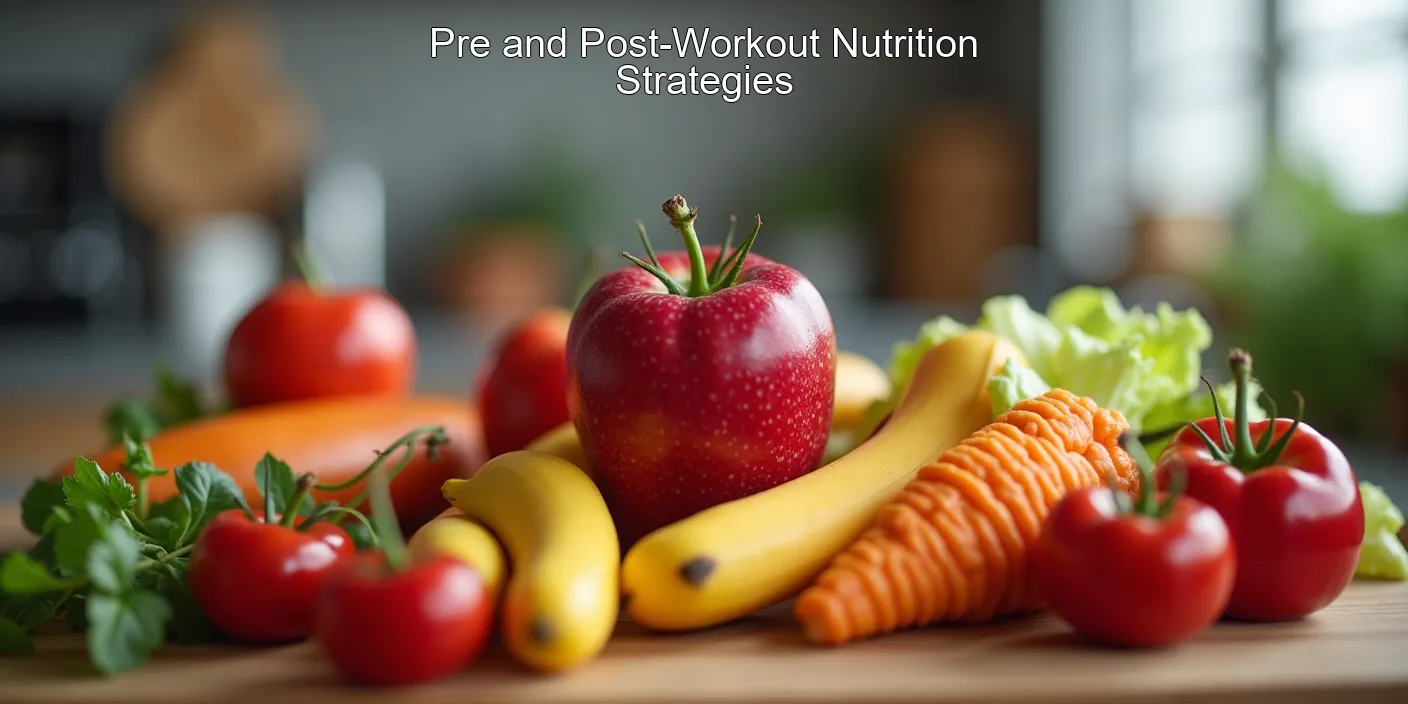
| Timing | Recommended Foods |
|---|---|
| Pre-Workout | Banana, Oatmeal, Greek Yogurt |
| Post-Workout | Chicken Breast, Sweet Potato, Spinach |
Fueling your body before and after workouts is crucial for peak performance. Here’s what you should focus on:
“Fueling Fitness: The Impact of Pre and Post-Workout Nutrition”
- Pre-workout: Easily digestible carbs and a small amount of protein
- Post-workout: High-quality protein and complex carbohydrates
- Hydration: Water or electrolyte-rich drinks
“Recovery is the most important part of your workout.” – Kobe Bryant
FAQ: Pre and Post-Workout Nutrition
Q: How long before a workout should I eat?
A: Aim to eat a meal 2-3 hours before exercise, or a small snack 30-60 minutes prior.
Q: What’s the best post-workout recovery drink?
A: Chocolate milk is an excellent option, providing a good balance of carbs and protein.
Q: Should I take protein supplements?
A: While whole foods are preferable, protein supplements can be convenient for meeting increased protein needs.
Best Practices for Pre and Post-Workout Nutrition
- Experiment to find what works best for you
- Avoid heavy, fatty foods before exercise
- Replenish glycogen stores within 30 minutes post-workout
- Include both carbs and protein in your post-workout meal
Research published in the International Journal of Sport Nutrition and Exercise Metabolism shows that consuming 20-25 grams of protein post-workout can maximize muscle protein synthesis.
For more insights on optimizing your athletic performance through proper nutrition, check out our Fitness & Training section. You’ll find expert advice on various training methods and nutrition strategies to help you reach your peak performance.
Remember, nutrition is just one piece of the puzzle. To stay updated on the latest developments in sports science and technology that can give you a competitive edge, visit our Sports Technology page.

Interested in learning from the best? Explore our Athlete Profiles to discover how top performers fuel their bodies for success. And don’t forget to stay informed about the latest happenings in the world of sports by checking out our Global Sports News section.
